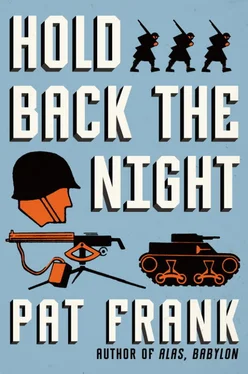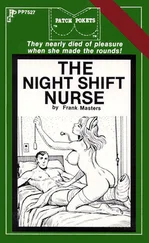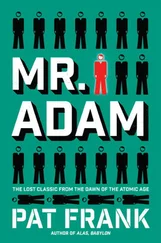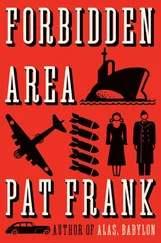“He was running right with me, sir,” said Nick Tinker. “He stumbled.”
“Hit?”
“I think so, sir.”
This was disaster. Ackerman was the bazooka man, and the bazooka was all Mackenzie’s artillery. It was his mortars, his 75-millimeter recoilless gun, and his other, lost bazookas all rolled into one thin tube. It was his sole effective weapon against enemy armor, or a road block, and he had no doubt that they would encounter armor, or a block, before they came out of this gorge. He rummaged in his musette bag, found his glasses, and crawled to a place between the rocks from where he could see, and not be seen.
First he swept the hills opposite, where the enemy was, but the enemy was invisible, as usual. In a way this was encouraging. If the enemy was assembling a force to storm his tiny party, then they had not yet gathered in what they considered sufficient numbers. The enemy was prodigal with men, as the Americans were with shell and bomb. Some thought the Chinese crazy, with their wild, bugle-heralded, chattering charges. He did not agree. America’s arsenal was rich in materiel. Red China’s and Russia’s was crammed with expendable bodies. America considered people important, and munitions expendable, but it was different on the opposite side. It was simply a matter of viewpoint.
He shortened the focus on his glasses and examined the area where the mortars had come in on them. His glasses picked up what he sought, a lonely figure grotesquely sprawled in a patch of snow beside the road. He focused on it for a full minute, until he was sure he saw the bazooka under Ackerman. In that minute the figure did not stir. He called Ekland. “Sergeant, come up here.”
Ekland crawled up until he was comfortable in a crevice just below. “We’ve got to have that bazooka,” the captain said.
“Yes, sir.”
“I’m going to send out one man. They may not want to waste a round on one man. Who do you think we should send?”
“Me, sir.”
Mackenzie thought it through. “No, sergeant, you can’t go. You know how to use cover, and I think you might make it there and back okay. But you might not. And I can’t afford to lose you. You’re too good with the BAR. And besides if anything happens to me I depend on you to take the company out.”
“Nothing’s going to happen to you, sir.” Now that it seemed they had a chance, Ekland was dismayed by the thought that something might happen to the captain. Ekland was a technician, and had never commanded.
“Something could happen to me,” Mackenzie said. “It happened to the others.” This was a nasty thought at the moment—that every one of your junior officers, without exception, was dead; or a wounded prisoner perhaps craving death like a merciful drug; or in one case a probable coward and malingerer, skulking back to Tokyo and the warm safety of home. “Well, who do you think, then?” the captain demanded.
“Ostergaard,” the sergeant suggested. “He has what it takes.”
“Too big and unwieldy,” Mackenzie said. “Not fast enough.”
“Well, Beany Smith. He’s a tough little monkey.”
“I don’t think Beany Smith could make it there and back. He’s got guts, but how good are his legs? And can he hide himself? Do better, sergeant.”
“Well, then, sir, you’re going to laugh, but I’d say Tinker.”
“No, I’m not going to laugh,” Mackenzie said. “He’s got more resilience, and stamina, than any of us.” He called for Tinker, and Tinker scrambled up until he was beside Ekland.
Tinker looked, the captain thought, the way Tom Sawyer must have looked to Mark Twain, full of piss and vinegar, and excited and eager as if this foul and awful business was S.O.P. “Son,” the captain said, “think you can make like a Red Indian?”
Tinker grinned. “That’s the best thing I do. Out where I live, that’s all us ever did, make like Indians. That’s all there was to do, hunt, and trap.”
“Where do you live?”
“Oh, it isn’t any place much. It hasn’t got any real name, but people call it Hickory Switch. It’s near Hyannis, and Hyannis isn’t very far from Alliance.”
“Hyannis and Alliance what?”
“Nebraska, sir. In the sand hills.”
The captain grabbed Tinker’s shoulders, and pulled him up to where he could see the terrain through the niche in the rocks. “See Ackerman out there?”
“I think so. Yes, I see him.”
“Think you can get out there, and back, without getting shot?”
“Sure.”
Mackenzie had no way of knowing, but Tinker would without question do anything his captain suggested. The captain was Nick Tinker’s god. Most of the others thought their skipper a hard guy, but Tinker did not think him hard—not when Tinker compared him with his father and older brothers. To Tinker, the captain was fair, and even on occasion kind.
“Okay, son, I want you to go out there and get that bazooka that’s under Ackerman, and any rocket shells he may have strapped on his back. Be careful. Use concealment. Make like a Red Indian.”
“And Ackerman, sir?”
“I don’t think there’s anything you can do for Ackerman.”
“The United Nations massive compression envelopment in North Korea against the new Red armies operating there is now approaching its decisive phase… if successful, this should for all practical purposes end the war, restore peace and unity to Korea, and enable the prompt withdrawal of United Nations military forces.”
—General MacArthur’s communiqué of November 24, 1950.
AS THE COMMUNICATOR for Dog Company, Sergeant Ekland had charge of all the radio equipment. After the regiment settled down at the reservoir, and the company was assigned security patrol at Ko-Bong, guarding a triangular spit of land extending into the frozen waters, he moved a radio receiving unit to his tent, and placed it between his cot and Ackerman’s, so that he and Ackerman could listen to the news, and music, and Stateside shows broadcast by AFN.
Ekland and Ackerman had a number of things in common. They were older men. They were twenty-five. They each loved one woman. The four others in Ekland’s tent talked continuously of women, but the women of whom they talked weren’t their women. They were remote Hollywood beauties, or pin-up girls freshly clipped from Life, or high school steadies whom they now endowed with unmerited passion and sophistication, or the wise little tramps of San Diego and Norfolk dance halls and juke joints, who in warping memory acquired sincere lips and soft voices, and were no longer predatory. But Ekland and Ackerman really had women, Ackerman a wife and Ekland the girl he was to marry, if he ever got home. Time and distance, compassionate artists, were kind to all these women, painting over their defects, retouching their faces, and molding their bodies anew. So when the men told outrageous lies about their women, and boasted of their own sexual prowess, it was not that they lied, really. That was the way they remembered it.
After evening chow on November 24, Ackerman, Ekland, and the other four in the tent—Swede Ostergaard, Kato, Heinzerling, and Petrucci—listened to the six o’clock news and caught the MacArthur communique. Then Ekland clicked off the radio, for he knew that next to women, the men liked best to talk of the progress of the war, and their chances of getting home.
“What in hell does he mean?” asked Heinzerling. “Massive compression envelopment? Who’s compressing who?”
“Us,” said Ekland. “We’re compressing. Not us personally, but those boys from the Seventh up on the Yalu River, and our other regiments, over on the other side of the reservoir at Yudam-ni.”
“I bet they’re sitting on their fannies, just like us, trying to keep warm,” said Heinzerling, a dark, wide-shouldered man nurtured in the Youngstown steel mills.
Читать дальше












